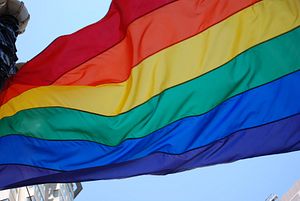In Jakarta, on the evening of August 29, 2020, a 31-officer police unit raided a private “gay party” of 56 men in a hotel, arresting and charging nine, the alleged event organizers. The men were charged with the crime of facilitating obscene acts and under a 2008 pornography law, which carries a maximum penalty of 15 years in prison.
Human rights groups have said the law discriminates against LGBT people and that the recent raid highlights the threat to the rights of LGBT people in the country.
“There is no legal justification for criminalizing the behavior these men are accused of. Raids like these send a terrifying message to LGBTI people,” said Usman Hamid, the executive director of Amnesty International Indonesia. “We call on the authorities to release all people arrested in the party and drop all charges against them. They must also stop these arbitrary and humiliating raids and stop misusing laws against loitering or public nuisance to harass and arrest people accused of same-sex activity.”
“No one should be targeted and arrested because of their actual or perceived sexual orientation and gender identity. The police should be keeping everyone safe, not stoking more discrimination.”
Homosexuality is legal in Indonesia, apart from in the conservative province of Aceh, but attacks on the community from politicians, police, conservative think tanks, and Islamist and other religious groups have been on the rise in recent years.
In 2017, following months of hateful rhetoric from within most political parties, West Java police chief, Anton Chariyan, announced that a special taskforce had been set up to investigate LGBT activity. He told reporters that LGBT people suffered a “disease of the body and soul” and called on the public to report the community’s activities.
As raids increased, the Human Rights Watch released a report, titled “‘Scared in Public and Now No Privacy’: Human Rights and Public Health Impacts of Indonesia’s Anti-LGBT Moral Panic,” which details how rhetoric translated into attacks by Indonesian police and militant Islamist groups against people presumed to be LGBT.
In January of this year, the mayor of Depok, in West Java, Indonesia’s most populous province, ordered police to raid private residences to look for “immoral acts” and “prevent the spread of LGBT.”
A month later, the Indonesian House of Representatives proposed a so-called Family Resilience bill, which, among other things, would require LGBT people to seek treatment at government-sanctioned rehabilitation centers for their “deviant” sexual persuasions.
Responding to a string of “gay-bashing campaigns” by politicians, the Jakarta Post published an editorial stating the country “is witnessing the emergence of ‘Trumpism,’ where spinning hate is becoming the new norm in Indonesian politics.”
“The list of government officials or politicians making incendiary statement against the lesbian, gay, bisexual and transgender community, which is clearly defenseless in a nation that tends to simplify homosexuality as a sin, is already lamentably long,” read the editorial.
The 2008 Law on Pornography prohibits the “creation, dissemination or broadcasting of pornography containing deviant sexual intercourse,” which it states includes sex with corpses, sex with animals, oral sex, anal sex, lesbian sex, and male homosexual sex. Police use of the law to target LGBT people is not new.
Between September and December 2017, seven men were found guilty under the law and sentenced to between 18 and 30 months in prison; 58 people were arrested at a popular gay club in Jakarta; and a further 141 people were arrested at a sauna, with 10 of the men ultimately being sentenced to between two and three years in prison.
Kyle Knight, a senior LGBT rights researcher at Human Rights Watch, said the “latest raid fits into a disturbing pattern of Indonesian authorities using the pornography law as a weapon to target LGBT people.”
“The government has been inciting hostility toward LGBT people for several years, and there is no accountability for abuses such as police raids on private spaces,” he said.
“The combination of exploiting the discriminatory pornography law and a lack of accountability for police misconduct has proven to be both dangerous and durable,” said Knight. “So long as the government permits police raids on private gatherings under a discriminatory law, it will fail to curb anti-LGBT harassment and intimidation.”
Human Rights Watch has also called on the Indonesian parliament to revise a new proposed criminal code that it says contains provisions that will punish extramarital sex by up to one year in jail. Since same-sex relationships are not legally recognized in Indonesia, this provision effectively criminals all same-sex conduct.

































